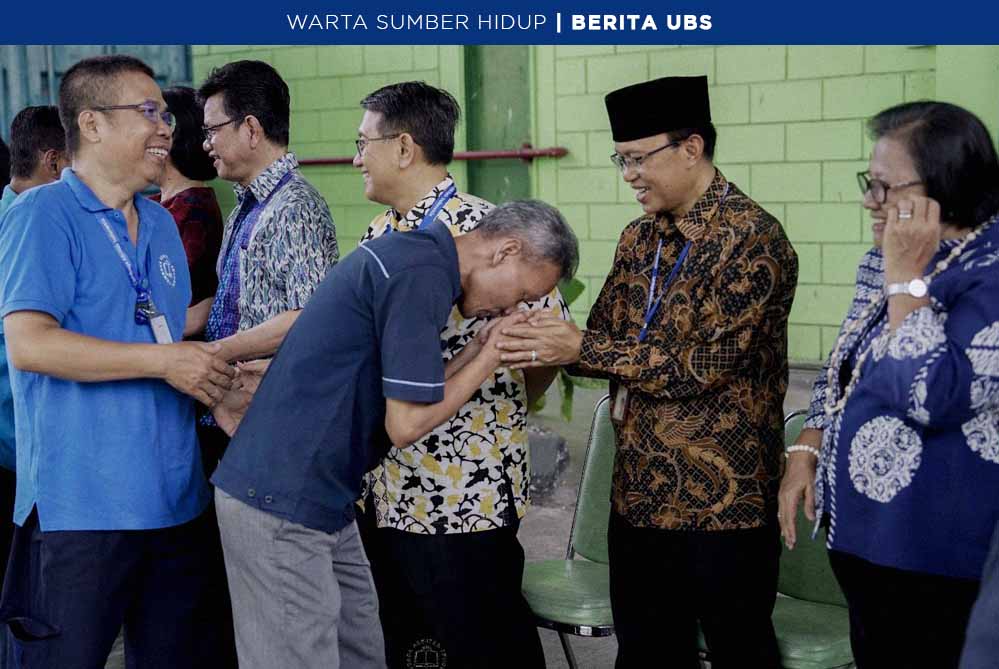Everyone's prayer experience is different. Not a few people have difficulty in praying, especially when prayer is just a routine with content that tends to be the same and is arranged in a memorized pattern. However, when someone is faced with a bad and extraordinary reality, the need for a deeper and more expressive prayer language becomes increasingly apparent. One form of prayer that reflects the depth of emotion and reflection of faith is lamentation. In the Bible, the tradition of lamentation is very real, one of which is in the Book of Lamentations, which is an expression of the people's hearts to God in the context of suffering after the fall of Jerusalem.
The Book of Lamentations is often avoided by many people because of its nature which is full of sadness and complaints. This book is tucked between two great books, Jeremiah and Ezekiel, so that it gets less attention. In addition, the tendency of human culture and psychology that opposes lamentation with hope also influences the way this book is understood. Many assume that lamenting and expressing sadness expressively is a sign of a lack of faith or hope. However, if we examine the Book of Lamentations in its historical context, we will find that this book has very great relevance.
The Book of Lamentations was written in the context of the destruction of Jerusalem in 587 BC. When the holy city was destroyed, and many Jews were exiled to Babylon. At that time, God's people experienced great loss, not only losing their homes and relatives, but also facing a very deep theological question: "Why did the faithful and good God allow this suffering to happen to His chosen people?" This question is not just an expression of sadness, but a deep reflection on the relationship between God and His people.
One of the most frequently quoted texts from the Book of Lamentations is Lamentations 3:21-24: “But this I call to mind, and therefore I have hoped: The steadfast love of the LORD never ceases; his mercies never come to an end; they are new every morning; great is your faithfulness! “The LORD is my portion,” says my soul, “therefore I have hoped in him.” These verses are a favorite of many people, because they convey a tone of hope in the midst of suffering. However, if we read the Book of Lamentations comprehensively, we will find that the more dominant tone in this book is actually lamentation and protest against God. This is clearly seen in Lamentations 5:20-22: “Why have you forgotten us forever? Have you forsaken us so long? Bring us back to yourself, O LORD, and we will return; renew our days as of old. Or have you cast us off altogether? Are you extremely angry with us?” How do we understand a book that ends on such a pessimistic note? It is interesting to note that in the Jewish tradition, the reading of the book does not end with the somber verse 22, but with a double repetition in verse 21, “Bring us back to you, O LORD, and we will return; renew our days as of old. Bring us back to you, O LORD, and we will return; renew our days as of old!”. This shows that lamentation is not just a complaint, but also a form of prayer that expects God’s restoration.
In the liturgical life of the Jews, the Book of Lamentations is part of several important celebrations, especially in remembering the destruction of Jerusalem. This book is not just a historical document, but also a theological reflection that continues to be relevant in various contexts of suffering.
In the life of faith today, lamentation teaches us not to hide our feelings before God. Lamentation is not a sign of a lack of faith, but rather an expression of honesty and sincerity in our relationship with God. Just as the people of Judah mourned in their destruction, today’s believers can learn that there is nothing wrong with expressing our sorrow to God, because it is in lamentation that we find the path to restoration and true hope.

























